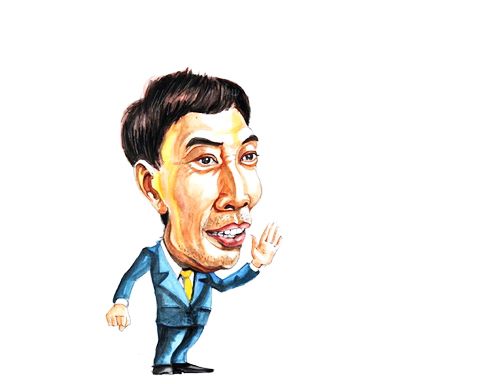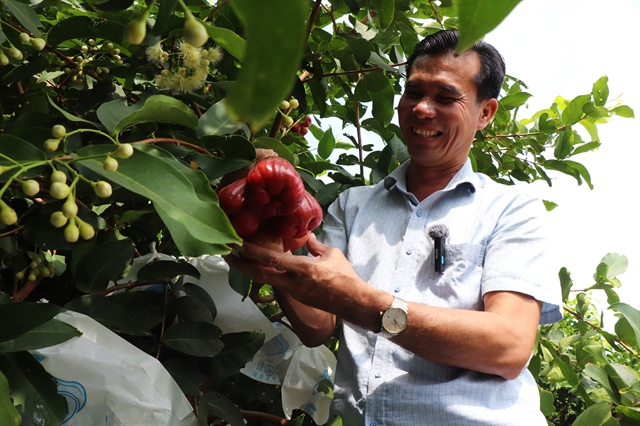.jpg) Economy
Economy

 |
| Võ Trí Thành. — Illustrative image |
* By Võ Trí Thành
Extended Producer Responsibility (EPR) is not a new issue. It has been associated with the 3R initiative (reduce, reuse, recycle) since the 1970s and 1980s. However, its significance has recently surged globally and in Việt Nam, amid the evolving landscape of environmental consciousness.
This policy framework requires producers to take responsibility for the disposal or recycling of products at the end of their lifecycle. EPR has become a crucial tool closely associated with the goals of green mobility, sustainable development and circular economic strategies.
In Việt Nam, the Environmental Protection Law of 2020, effective on January 1, 2022, introduced the concept of Extended Producer Responsibility (EPR), outlining the obligations of producers and importers concerning the recycling and disposal of discarded products and packaging.
The law delineates two key responsibilities: waste collection and treatment and product recycling. They apply to manufacturers, importers and necessitate the establishment of robust waste management and recycling systems.
The issuance of Decree 08/2022/NĐ-CP on January 10, 2022, providing detailed guidance on various aspects of the Law on Environmental Protection, marks a significant milestone. This decree offers comprehensive instructions on criteria, application methods, assignment of responsibilities, and incentive mechanisms aimed at promoting circular economy practices. It's regarded as a pivotal lever in contributing to sustainable development, with expectations of positive impacts on circular economy initiatives, especially those related to recycling.
In tandem with the Circular Economy Development Project initiated on June 7, 2022, policymakers have diligently explored viable solutions for practical application. Notably, Clause 8, Article 140 of Decree No. 08/2022/NĐ-CP outlines the role of tax and fee instruments in driving circular economy efforts. These instruments are directed towards various environmental protection endeavours, including waste management, recycling, energy production and renewable energy initiatives.
Effective January 1, 2024, the recycling responsibility compels manufacturers and importers of batteries, accumulators, lubricants, tyres, and commercial packaging to take proactive measures. Subsequently, electronic equipment will be included in 2025, followed by vehicles, including motorbikes and cars in 2027.
They are mandated to recycle their products and packaging post-consumer disposal, adhering to prescribed specifications and rates outlined in relevant laws and regulations. This shift marks a departure from voluntary recycling practices to mandatory obligations, ensuring compliance with legal mandates and fostering a more sustainable approach to waste management.
While EPR remains the linchpin of circular economy initiatives, its scope extends beyond mere waste management. It serves as a catalyst for supply chain transformation, bolstering business competitiveness and nurturing the growth of recycling industries. Việt Nam's journey towards circular economy necessitates a multifaceted approach, transcending traditional notions of waste management to embrace a holistic perspective of resource utilisation and conservation.
However, amid the optimism surrounding Việt Nam's foray into circular economy practices, a myriad of challenges loom on the horizon. The debate surrounding criteria and recycling rates underscores the need for nuanced deliberations, navigating the delicate balance between regulatory mandates and market dynamics.
Similarly, policy discussions revolving around collection and recycling fees underline the complexity of aligning market forces with State interventions. In many cases, the contrast between consumer demands, manufacturers and regulatory requirements necessitates a subtle approach, achieving a careful equilibrium between market-driven solutions and state interventions.
Globally, there exists a Producer Responsibility Organisation (PROs) mechanism. PROs are involved in collective EPR systems, where a third party assumes partial or full responsibility for waste disposal and management. They typically act as joint institutions to manage packaging waste post-consumer use and coordinate waste management activities. To meet legally mandated recovery rates and waste management standards, PROs levy fees on obligated companies, usually those introducing packaging to the market (suppliers, producers importers).
In Việt Nam, a National EPR Council and EPR Office have been established, tasked with overseeing the implementation of EPR mandates. This supervisory apparatus, comprising representatives from various sectors, is entrusted with the responsibility of advising governmental bodies and ensuring the effective execution of EPR regulations.
However, concerns linger regarding the efficacy and transparency of this regulatory framework, emphasising the need for enhanced oversight and accountability measures. The judicious allocation of resources, extent of contribution and the corresponding level of support remain paramount, ensuring the alignment of businesses with national imperatives.
Amid the complexities inherent in Việt Nam 's transition towards circular economy practices, the nation stands poised at a crucial juncture. While hailed as a leader in ASEAN for its proactive stance on EPR implementation, Việt Nam must heed the experiences in the world and embrace a broader vision of circular economy.
This entails embracing emerging concepts such as 7R (Redesign, Reduce, Reuse, Repair, Renew, Recover and Recycle) and 9R (Refuse, Rethink, Reduce, Reuse, Repair, Refurbish, Remanufacture, Repurpose, Recycle and Recover), which transcend traditional notions of waste management to encompass broader principles of resource optimisation and sustainability.
Moreover, it necessitates a concerted focus on research and development (R&D), skill enhancement, and supply chain optimisation, fostering an ecosystem conducive to circular economic practices. Nowadays, consumers are also concerned about product durability, minimising the use of input resources, and minimising emissions.
As Việt Nam embarks on this transformative journey, a delicate balance must be struck between State interventions and market mechanisms. While the imperatives of a green economy and circular economy are undeniable, their realisation hinges upon a symbiotic relationship between governmental support and market forces.
In essence, EPR serves as a beacon of hope, illuminating the path towards sustainable development and environmental stewardship. Việt Nam's embrace of circular economy principles not only reflects its commitment to international obligations but also underscores its resolve to forge a path towards a greener, more sustainable future.
*Võ Trí Thành is a former Vice President of the Central Institute for Economic Management (CIEM) and a member of the National Financial and Monetary Policy Advisory Council. A doctorate in economics from the Australian National University, Thành mainly undertakes research and provides consultation on issues related to macroeconomic policies, trade liberalisation and international economic integration. Other areas of interest include institutional reforms and financial systems. He authors Việt Nam News column Analyst’s Pick.




